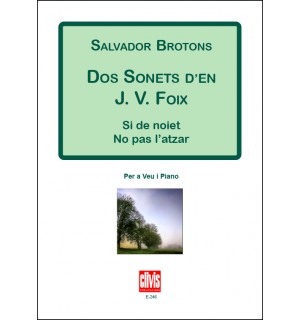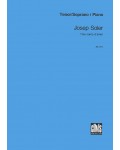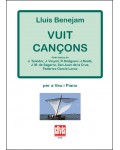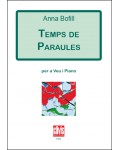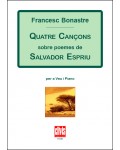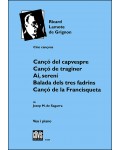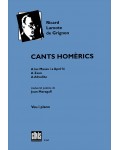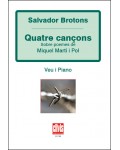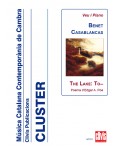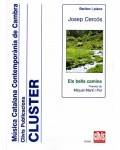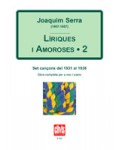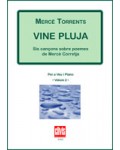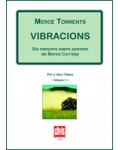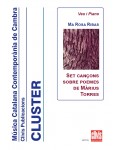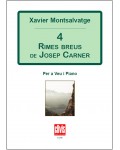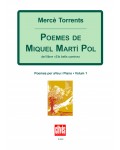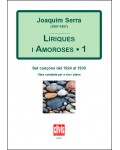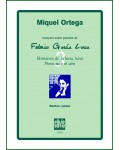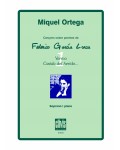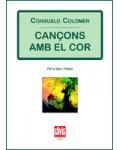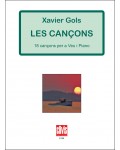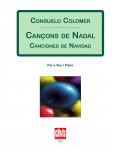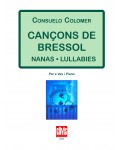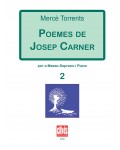
No products
Prices are tax included
Product successfully added to your shopping cart
There are 0 items in your cart. There is 1 item in your cart.
- English
- Castellano
- Català
DOS SONETS DE J.V.FOIX
E246
New product
The two sonnets are from Foix’s De sol i de dol (‘Of Sun and of Pain’) (1947), the first of his collections of poems to be published in which he achieves the unique blend of classicism and avant-gardism which consolidated his renown as a poet.
| Period | XXth Century |
| Subheading / Parts | Si de noiet - No pas l'atzar |
| Instruments | Voice, piano |
| Text language | Catalan |
| Pages | 20 |
| Contents | Score |
| ISMN | 979-0-3502-0456-2 |
| Others | Josep Vicenç Foix (poemes) |
| Edition | Printed |
Throughout his career as a composer, Salvador Brotons has set dozens of poems to music. The list of poets he has set music to features some of the great names of twentieth-century Catalan poetry, such as Salvador Espriu, Josep Carner, Miquel Martí i Pol, Pere Quart, and includes these two sonnets by Josep Vicenç Foix (1893-1987). To mark the centenary of this poet’s birth, the Fundació J. V. Foix commissioned Brotons with composing a piece based on Foix’s sonnets. The composer completed this task on 28 December 1992, just one month before the commemoration of the centenary. Dos sonets d’en J.V. Foix was debuted at the Círculo de Bellas Artes in Madrid on 6 May 1993, performed by Joan Cabero (tenor) and Manuel Cabero (piano). Clivis Publicacions edited the first edition in 1994.
The two sonnets are from Foix’s De sol i de dol (‘Of Sun and of Pain’) (1947), the first of his collections of poems to be published in which he achieves the unique blend of classicism and avant-gardism which consolidated his renown as a poet. Brotons delves into the often metaphysical meaning of Foix’s words and sets them to music with gentle, though rhythmical, melodic phrases, with a slightly different treatment in the stanza of four verses and in the stanza of three to establish some kind of internal balance within the piece. The melodic phrase of the poem Si de noiet is developed without sudden jumps, preferably with consecutive degrees, while the start of No pas l’atzar presents more diverse intervallic approaches in response to the poem’s content, as well as a very effective climax on the word ‘sagna’ (‘bleeds’).
David Puertas Esteve

